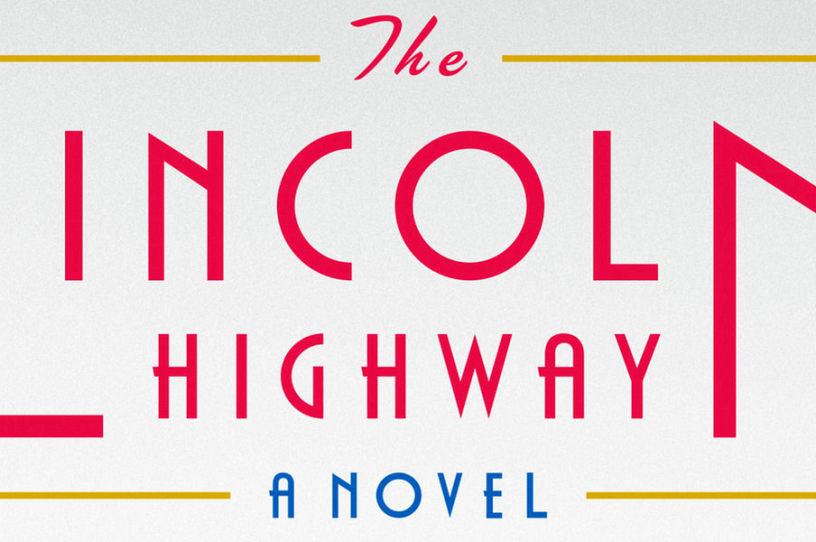Earnest Heroism and Not-So-Lovable Rogues

The Lincoln Highway is a novel obsessed with heroism. Set in June 1954 in Nebraska (to start), the novel gives us a Mark Twainesque road trip from the Midwest to New York City; a refreshing tale set in a time before superheroes dominated the culture, one that explores the idea of the American spirit and heroes; figures from both fiction and real life like Ulysses, Shakespeare, andAbraham Lincoln.
The hero of The Lincoln Highway itself is Emmett Watson, an 18-year-old released early from a juvenile work farm after his father’s death. After serving his time for accidentally killing a bully in a fight, Emmett wants nothing more than to get a fresh start and lead a quiet life raising his 8-year-old brother Billy out in California. Little does Emmett realize that as he left the farm, two friends he made there—Duchess and Woolly—use his release as a chance to escape, with a harebrained scheme to go to New York to retrieve $150,000 Woolly is owed by his family. Emmett and Billy set out for the West Coast, but when Duchess “borrows” their Studebaker they quickly find themselves pulled into a cross-country adventure in the opposite direction.
Author Amor Towles is incapable of writing bad prose; his first two novels are beautifully crafted journeys into the world of the upper class, and while The Lincoln Highway—focused on the lives of poor farmers and train-hopping hobos—doesn’t have the same sumptuous imagery of ritzy hotels and fancy restaurants, it retains Towles’ unique voice and turns of phrase. Quite simply, Towles could write an instruction manual and it would be entertaining to read.
And in some ways, The Lincoln Highway is an instruction manual. Through the tales of the heroes of old—heard from the precocious Billy, who frequently references his compendium of heroes for advice—and from the actions of the characters, The Lincoln Highway shows us what it takes to be a hero.
Duchess might appear, at first glance, to be the character who most fits the heroic mold. He was falsely imprisoned after being framed for a crime he didn’t commit, and with oodles of charisma and wiles he manages to charm everyone he encounters. He is the man with the plan, off on adventure in search of fortune, evading and overcoming every obstacle that gets in his way. The Lincoln Highway sets us up to really want to like Duchess—he’s even the only main character through whose eyes we see the events of the novel. Each chapter follows a different character and Duchess, unlike Emmett, Billy, and Woolly, gets to do some first-person narrating. Even Emmett can’t begrudge Duchess too much for stealing his car and derailing his planned trek to California.
Duchess is a lovable rogue, the sort of wisecracking anti-hero with which modern culture—and, ahem, the Marvel Cinematic Universe—is rife. But The Lincoln Highway is an earnest book, and, in keeping with the values of the era in which the story is set, as the novel progresses it dissects the lovable rogue trope. Duchess is dishonest, he is self-centered, and he is cruel. He lies, cheats, steals, and even assaults others in order to achieve his objectives. By the end of the novel, we’re left with the same Duchess we had at the beginning of the story, but with a deeper understanding of the character—and suddenly his actions take on a dark edge.
As our understanding of Duchess deepens, so too does ours of Emmett, who despite being the main character initially comes off as rather bland. He’s a true Midwesterner: He’s quiet and polite, has a strong work ethic, and just wants a chance to make a simple life for himself. Emmett attempts to reject the call to adventure, but as he finds himself forced into corner after corner, it becomes clear that those qualities make Emmett more than up for the task. Duchess, he leaves a trail of destruction in his wake en route to New York, and he chooses to remove obstacles through harmful methods. Emmett takes a far more difficult path, but one that lets him sleep at night. This is not to say that Emmett doesn’t make any mistakes, but when he errs, he seeks to rectify the situation—he even goes to the work farm willingly though he hadn’t intended to kill the bully and had been provoked into the fight, facts, he says, that make no difference to the fact that a life was ended and even accidents require penance. When he returns home and the brother of the dead boy wants to hit him, Emmett lets him, motivated by that same deep sense of justice.
The Lincoln Highway is a book that seems out of place in 2021. It tells a tale of heroism grounded in realism that advocates for an earnestness and quiet dignity we rarely see in either our stories or our culture. Anti-heroes have their place in the storytelling tradition, but as The Lincoln Highway shows, the heroes most worth modeling ourselves after are those honorable and upright.